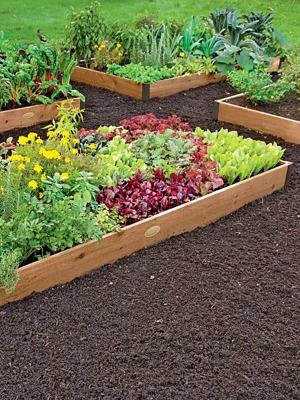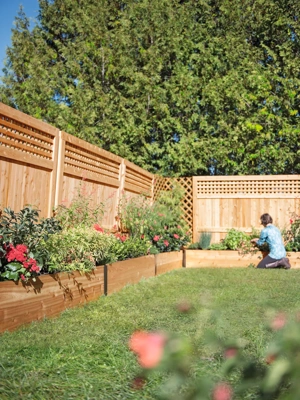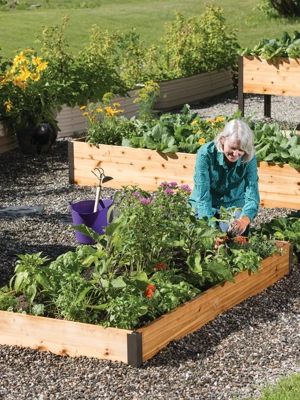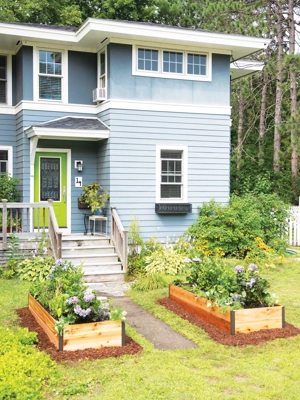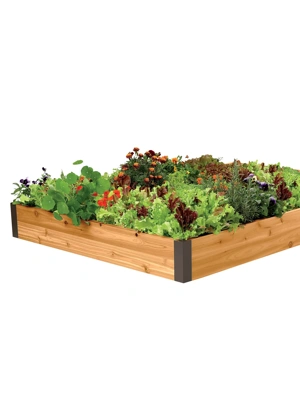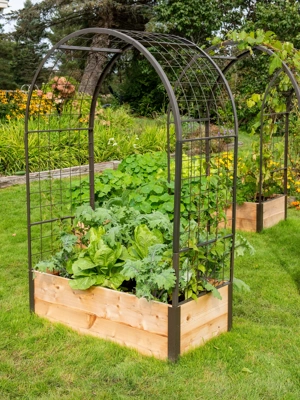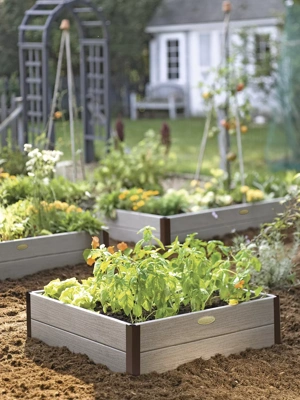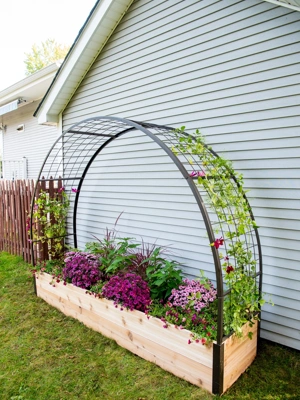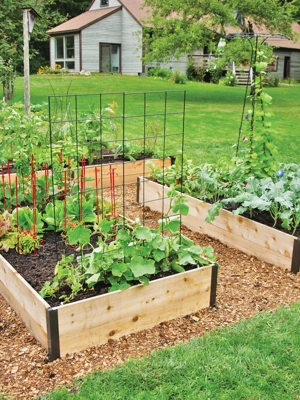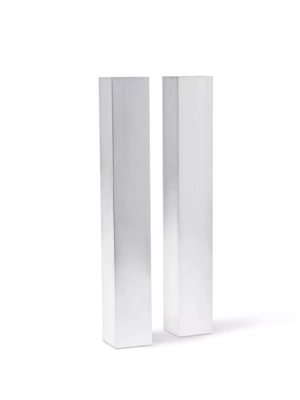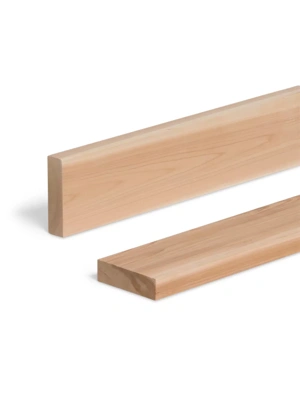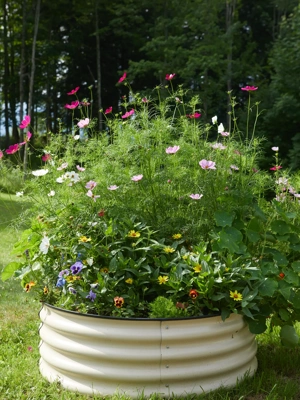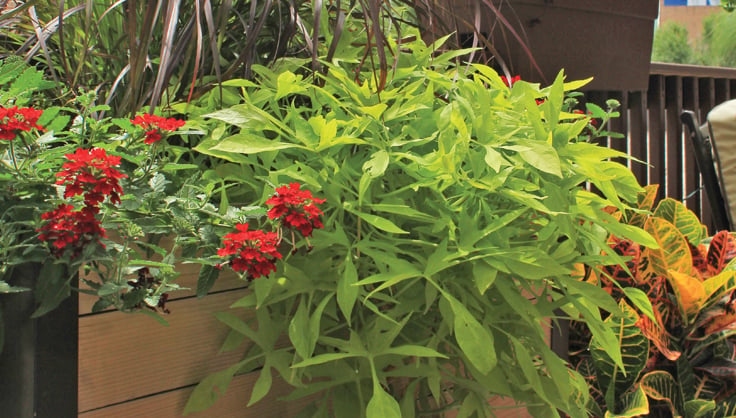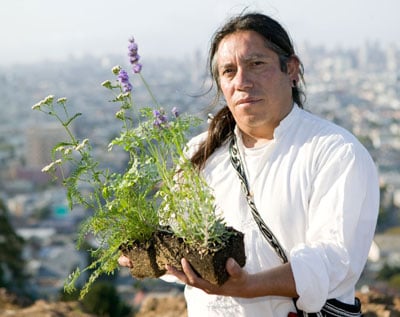Garden Crusader: Michael Howard
2005 Garden Crusader Award
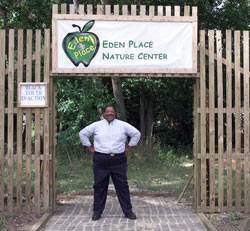 |
| Garden Crusader Michael Howard |
When he left the military, Michael maintained his connection to the outdoors by going camping and fishing. But something was changing inside. Other people's littering and lack of appreciation for the natural world bothered him.
Michael and his wife decided they needed to do something that would make a difference. The couple decided to sell their house in an affluent Chicago neighborhood and move into one of their rental properties in Fuller Park, an impoverished section of town.
Fuller Park Community Development
This area of town had many rundown houses and one-third of the lots were vacant. "We started by helping people fix up their homes," says Michael, whose work experience as a general contractor came in handy. "Then we started thinking about the abandoned lot across the street from our house. It had been an illegal dump site for 35 years," he says. "We had to do something about it."
For the average person, this would have been a daunting project. Mounds of waste two stories high littered the 3-acre site. Michael organized some neighbors to start cleaning up the lot, but for every wheelbarrow of trash they removed, more trash would be illegally dumped the next night. Up to 20 tractor-trailer truckloads a week were being dumped on the site. It was a losing battle. Never deterred, Michael met with city officials and the EPA to try to stem the flow of illegal dumping. "We set up cameras to catch the dumpers and within a few months the dumping activity was cut in half," he says.
This gave Michael and the Fuller Park Community Development volunteers a fighting chance. With support from local businesses, the EPA, and the city, they used bulldozers, Bobcats, and wheelbarrows to haul away more than 200 tons of concrete, trash and fill.
Eden Place Nature Center
In 1998, Michael met with the owners of the lot, city officials and the EPA. The landowners agreed to donate the lot to the neighborhood group. Now that the site was secured, they needed to decide how to use it.
Michael looked to the community for input, but many in this predominantly black neighborhood, thought helping the environment was a white man's thing. "I slowly convinced them that it's a human being's thing to take care of the environment. We need to take care of where we live," he says.
Michael decided to become a Master Gardener so he could learn more about plants and garden design. In 2001, the site was officially dedicated and they broke ground on the gardens. Because of a concern about lead in the soil, a 4- to 6-inch thick layer of topsoil was spread over the land, and only non-edibles were grown directly in the soil. Vegetables are grown in raised beds filled with clean soil.
In the beginning it was Michael, his wife and his kids that kept the garden growing. Slowly other gardens emerged and volunteers joined the cause. In 2001 a 6- by 300-foot perennial garden was installed. Trees and shrubs, such as apples, cherries and yews, are planted around the site. There is a mini-wetland garden, a prairie garden, and a savannah that's used to teach the local kids about nature. All of this greenery in the city has allowed wildlife to come back to the land. "We have opossums, rabbits, ducks and egrets in the gardens," says Michael. They even have a petting zoo with rabbits, chickens and ferrets. People began to use the garden for picnics, family reunions, and birthday parties. It became a safe place for everyone to gather.
The Kid's Garden
Growing a child-friendly garden wasn't quite enough for Michael and his volunteers; he wanted to make sure the kids used it as a learning tool. "We've developed curriculum for school teachers to use when they come to Eden Place Nature Center," says Michael. "There are classes in the environment, math, science, and reading all taught in the garden. The kids have taken ownership of Eden Place. It has become their garden," he says.
Next Project
Now that most of the site is reclaimed and gardens are flourishing, Michael is directing his attention to another need, an education building. "We've been using four tents and three sheds for classes," he says. "We're starting a capital campaign to raise money to build an education center. It will have classrooms, offices and meeting places for the community," he says. "We asked our neighbors what they wanted and they said they don't have a place to gather and drink coffee. So we'll include a coffee shop too," he says.
No matter what new gardens or buildings are built, Michael knows the real beneficiaries of Eden Place Nature Center are the families in the neighborhood. "This garden has helped families heal," he says. "It's helped them learn how to be healthy physically and socially. It's improved our quality of life." With Michael Howard around, there are surely many more good things to come.
Last updated: 11/14/2022
Print this Article:
Related items
Related Articles
Get the Dirt
Stay up to date on new articles and advice. Please fill out the information below.

